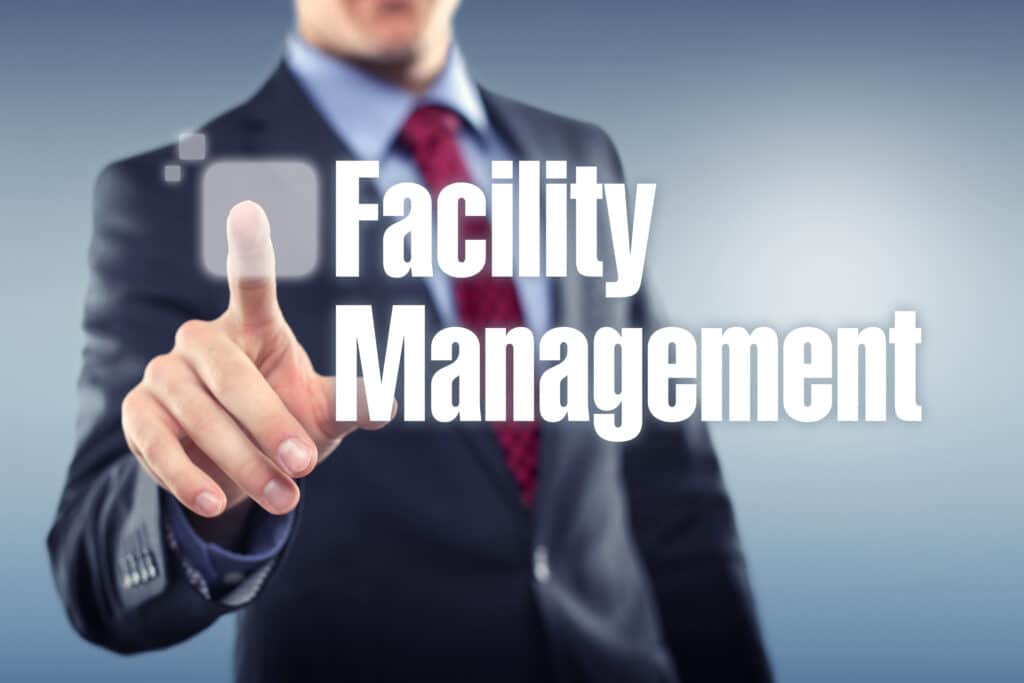How Total Facility Management Improves Business Performance and Operational Success
How Total Facility Management Improves Business Performance and Operational Success
Blog Article
Why Total Facility Management Is Important for Business Success
Total Facility Management (TFM) serves as a keystone for company success by harmonizing diverse operational facets such as maintenance, space use, and precaution. This integration not just boosts effectiveness yet likewise straightens facility management with overarching business goals. As organizations navigate an affordable landscape, comprehending the complex benefits of TFM can be essential in driving cost effectiveness and improving worker performance. The implications of embracing TFM prolong much beyond immediate operational gains, elevating critical concerns concerning its long-lasting effect on business resilience and competitiveness. What lies underneath this essential framework?
Recognizing Total Facility Management
Total Facility Management (TFM) includes a comprehensive method to managing a company's structures and linked solutions to make certain optimum capability, security, and effectiveness. TFM integrates different disciplines, consisting of upkeep, operations, space management, and safety and security methods, to develop a cohesive framework that sustains a company's core goals.
At its core, TFM aims to streamline the procedures associated with facility management, reducing redundancies and boosting service delivery. This strategy includes the sychronisation of activities connected to residential or commercial property management, such as fixings, cleansing, and energy management, to promote a productive setting for stakeholders and employees alike. TFM additionally highlights the importance of applying finest methods and ingenious modern technologies to enhance service top quality and decrease functional expenses.
Recognizing TFM needs recognition of its tactical significance in sustaining an organization's objective. By aligning facility management activities with business goals, TFM improves total efficiency while making sure compliance with health, security, and ecological policies. Hence, TFM serves not only as a logistical feature however also as a critical asset, adding to an organization's lasting sustainability and growth. In summary, TFM is important for producing a well-functioning setting conducive to company success.
Key Benefits of TFM
Leveraging a detailed strategy, companies that implement Total Facility Management (TFM) unlock a myriad of advantages that add to overall organization success. Among the main benefits of TFM is the enhancement of functional efficiency. By settling facility services under a unified management framework, companies can simplify procedures, lower redundancies, and boost interaction throughout divisions.
In addition, TFM advertises an aggressive upkeep approach, which decreases downtime and expands the life-span of facilitiess and devices (Total Facility Management). This positive method not only enhances efficiency however likewise fosters a safer working environment, inevitably bring about greater worker fulfillment and retention rates
Additionally, TFM facilitates better source allowance by supplying insights right into facility performance metrics. Organizations can identify locations for enhancement, allowing them to make informed decisions that straighten with their tactical goals.
TFM and Cost Efficiency
Achieving expense efficiency is a basic goal for organizations, and Total Facility Management (TFM) plays an essential role in this undertaking - Total Facility Management. By integrating various facility services under a solitary management framework, TFM allows organizations to enhance operations and lower redundancies. This alternative approach causes considerable price savings, as it eliminates the need for numerous vendors and streamlines procurement processes
Moreover, TFM promotes proactive maintenance approaches, which lessen the threat of pricey repair work and downtime. By focusing read this article on precautionary actions, companies can expand the lifespan of their properties and lower unexpected expenses. Additionally, TFM integrates power management methods, which can considerably reduce utility expenses via reliable resource use.
The centralization of data and analytics within TFM enables companies to make informed financial decisions. By recognizing fads and areas for improvement, TFM allows customized approaches that further improve price management. Additionally, the scalability of TFM options makes certain that as companies grow, their facility management practices stay effective and straightened with economic goals.
Enhancing Employee Productivity
A well-managed facility can considerably increase worker efficiency by producing a favorable work environment. Efficient Total Facility Management (TFM) guarantees that all aspects of the workplace-- from lighting and temperature level to sanitation and safety and security-- are enhanced. When workers operate in a space that is comfy and well-kept, they are more probable to focus on their jobs, causing higher output and job fulfillment.
In addition, TFM can improve partnership through the critical layout of common areas, encouraging synergy and advancement. By investing in the right sources and modern technology, organizations can promote smooth interaction and improve workflows, better improving productivity. Normal upkeep and timely responses to facility issues protect against interruptions that could or else hinder efficiency.
Furthermore, a safe and healthy and balanced workplace, supported by TFM practices, minimizes absenteeism and promotes health, directly associating with enhanced productivity degrees. Eventually, focusing on facility management is a financial investment not only in physical properties but additionally in the workforce itself. By promoting an atmosphere that sustains worker demands and preferences, services can cultivate a much more involved and efficient workforce, driving total success and competitive advantage.

Future Trends in TFM
Accepting technological improvements is readied to improve the landscape of Total Facility Management (TFM) in the coming years. As the demand for efficiency and sustainability increases, TFM will progressively adopt wise building technologies, integrating Internet of Things (IoT) tools to monitor and take care of facility operations in real-time. This shift will allow aggressive upkeep, dramatically enhancing and lowering functional expenses service delivery.
Sustainability continues to be a critical emphasis, with TFM professionals expected to focus on green methods. This consists of using renewable resource sources and maximizing waste management systems to reduce the carbon footprint of facilitiess.
Remote management capabilities will likewise be broadened, enabling facility supervisors to manage procedures from virtually anywhere. This flexibility will end up being important as organizations adapt to hybrid work models. In summary, the future of TFM is poised image source for transformation through technology, sustainability, and enhanced functional approaches, ensuring companies remain competitive in an evolving landscape.
Conclusion
In conclusion, Continued Total Facility Management is a crucial component for achieving business success. By incorporating various operational features, TFM enhances efficiency and aligns facility management with organizational purposes. The resulting price savings, improved staff member performance, and much safer work settings contribute considerably to overall efficiency. As services progressively adopt cutting-edge innovations and sustainable techniques, the importance of TFM will certainly continue to grow, ensuring lasting operational performance and competitiveness in an evolving industry.

Report this page